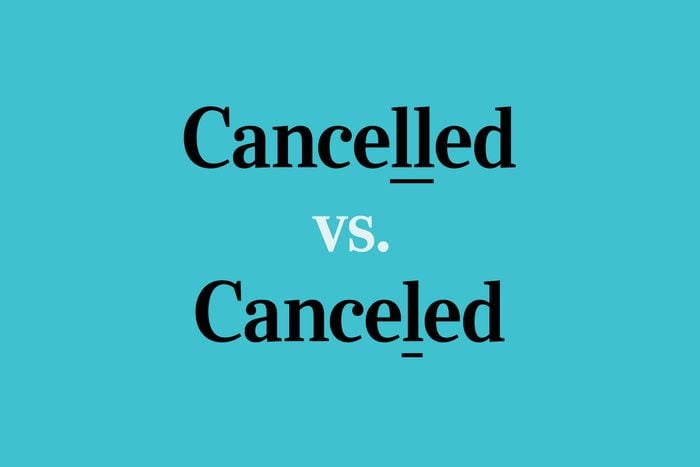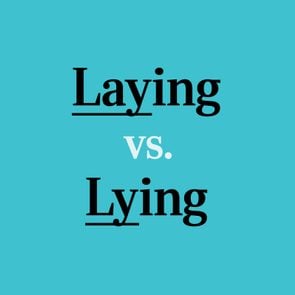Cancelled vs. Canceled: Which Is Correct?
Updated: Apr. 17, 2024

We're setting the record straight on whether your plans are "cancelled" or "canceled"
Another day, another plan you might have to change. Flights are notoriously unreliable, mostly due to staff shortages—airlines and airports experienced considerable layoffs during the height of the COVID-19 pandemic, and rehiring hasn’t kept up with the increased demand for air travel. In-person events, too, may be subject to change because of continued COVID-19 infections. As you roll with the circumstances and hope for the best, you may find yourself wondering how to write out any changes you encounter. Is “cancelled” or “canceled” the correct spelling for this turn of events?
As with other words that try to trip us up with variant spellings (we’re looking at you, “traveled” vs. “travelled”), there’s a clear-cut answer to your query—no gray (or is it “grey”?) area here. As you move toward (not “towards”) an understanding of the term and how it’s used, know it’s OK (or, perhaps, okay?) if you get it wrong once in a while.
Ready to learn whether “cancelled” or “canceled” is correct? Read on for spelling info you can count on, even as your calendar is in flux.
When to use “cancelled”
“Cancelled” is the British English spelling of the word—included in Samuel Johnson’s A Dictionary of the English Language, which made its debut in 1755. In general, you’ll find that for words of the same pronunciation, British English includes letters that American English does not: colour vs. color, rumour vs. rumor and, yes, cancelled vs. canceled.
In addition to England, countries that use British spellings include Australia, Ireland and Canada.
But—exception alert!—”cancellation” is the most common spelling, used in both British and American English. “Cancelation” is also accepted, but you won’t see it as often in any English usage.
When to use “canceled”
If your audience is mostly in the States, “canceled” will be the usual spelling choice. Linguists generally agree that this began with Noah Webster, whose name, of course, is linked with dictionaries in the United States. His An American Dictionary of the English Language was first published stateside in 1828 and used “canceled” as the preferred spelling.
As mentioned, American English tends to streamline the spelling of words by omitting letters that are not needed to pronounce the word. This is a good rule to keep in mind when you’re trying to remember if “cancelled” or “canceled” is correct.
That said, there’s also another rule that’s useful to remember …
Pronunciation matters
“Cancel,” when it’s spoken, has its emphasis on the first syllable. But when a word’s stress falls on its final syllable, it generally takes two l’s before “ed.” Examples of this are “compelled,” “rebelled” and “repelled.”
This is the case for both American and British English spellings. Pronouncing the word in your head will help you figure out whether this rule applies.
Cancelled vs. canceled
For a U.S. audience, “canceled” will be your best choice; for those who use British English, go with “cancelled.”
If you forget whether you should be using “canceled” or “cancelled,” no worries. Both are accepted, so pick one—just make sure you use it consistently throughout your communication.
But when it comes to fun plans, here’s hoping we’ve all got a bit less reason to use either “cancelled” or “canceled” in the near future—and that words like “accomplished,” “enjoyed” and even “celebrated” will continue to take its place. If you find yourself in a tricky situation, however, here is how to cancel plans politely.
Sources:
- Merriam-Webster: “Cancel”
- Grammarly: “Canceled or Cancelled?”



